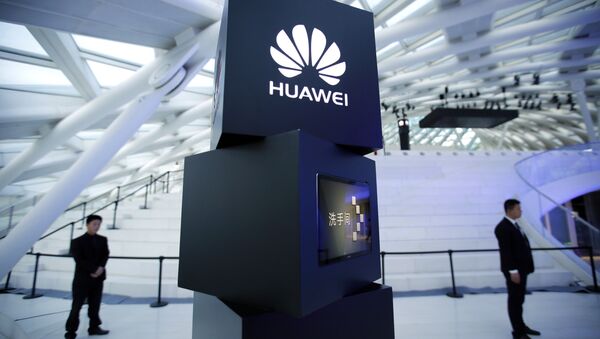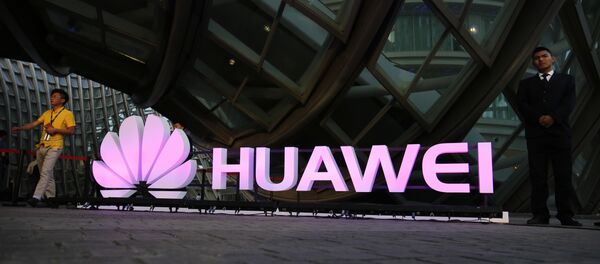Sputnik has discussed the Chinese Foreign Ministry's response to the accusations against Huawei with Carl Fey, professor of international trade with the School of Business at Aalto University.
Sputnik: There is still debate in Europe on whether to follow the US lead and exclude Huawei from their markets. What decision will Europe undertake? Will they listen to US-led calls for boycotting the company?
Carl Fey: I do think that there's a growing trend that is not so based on the fact that is trying to restrict access to various Chinese technology companies. I think this falls from a Chinese law that Chinese companies are supposed to support the Chinese government if there are national security interests. But in practice, I think we have to understand that Huawei would really see the end to their global business if people around the world really felt that they were basically spying for the Chinese government.
It's also important to realize that Huawei is a private company, and it's a company that has really made very progressive changes over the last decade, supported by a lot of different foreign consulting companies. And, in fact, today is importing a lot of foreign products in China as well as around the world.
Sputnik: Who profits from driving the Chinese tech company away from Europe?
Carl Fey: I think that people that would benefit the most would be other telecom infrastructure providers, especially the European ones, like Ericsson. They are actually the ones that are set to benefit the most if this goes forward. And I think some of this is also a bit of a debate of how much do you the US leaders.
The US is currently under President Trump's leadership that has first banned Huawei from making bids on government contracts. I think there's some implicit pressure for some European countries to follow that. The question is will Europe will steer its own course; and given the current trade dispute between China and the US, and the fact that Huawei is already so large in Asia, Europe is really an important market for Huawei. And, in fact, Russia, in particular, is an important market for Huawei as well. So, Huawei will be very keen for them to be able to maintain access to Russia and other parts of Europe.
Sputnik: Experts say that China does not really have any alternative to the European market. How true is this?
Carl Fey: As I've just mentioned, I think that it's pretty true. I mean, there're alternatives, but alternatives on the scale where there is low saturation for Huawei are few and far between. I mean the main option there would be, for example, Africa and Latin America where Huawei has already made quite substantial grounds and is often going in subsidized contracts that are held by the Chinese government. So, there's a sort of a limit on how far you can go that.
Europe is a very important market for Huawei. Huawei has had success in going abroad in part because they have been willing to adapt their products more than many competitors were willing to do, and they have been really good in dealing in somewhat adverse circumstances where you need more robust networks. So, Huawei is really well-placed to succeed in the Russian market, which has been an important market for it.
Sputnik: Will Europe heed the US call to boycott the Chinese company?
Carl Fey: I think that is a difficult question how that's going to happen. I'm not 100 percent sure about that. I guess I'm about 50-50 on that because Europe does want to show that it's not going to be bullied around by the US. Europe does think that an average US-Chinese trade dispute is not a correct way to go; there is some resistance to it.
On the other hand, recent actions, like what's happened in Poland, raise many concerns in Europe about security. So I think we have to wait on that. I'm a little reluctant to predict what Europe can actually do, but I hope they will decide to continue to welcome Huawei. Just one final thing to mention, Huawei has taken some, I think, useful steps.
For example, in Germany, they have announced they are developing a laboratory where regulators can scrutinize their gear and even have access to the source code that is being used in their devices. This type of move has been really well received by the global community. Hopefully more of that will come and hopefully, that will be enough to persuade the countries in Europe that it's okay to continue to have Huawei making bids for infrastructure contracts. We need increased competition in an industry that is fairly consolidated.
READ MORE: China Could Respond to Czech Republic, Poland Over Huawei Case — Pundits
The views and opinions expressed by the speaker do not necessarily reflect those of Sputnik.


